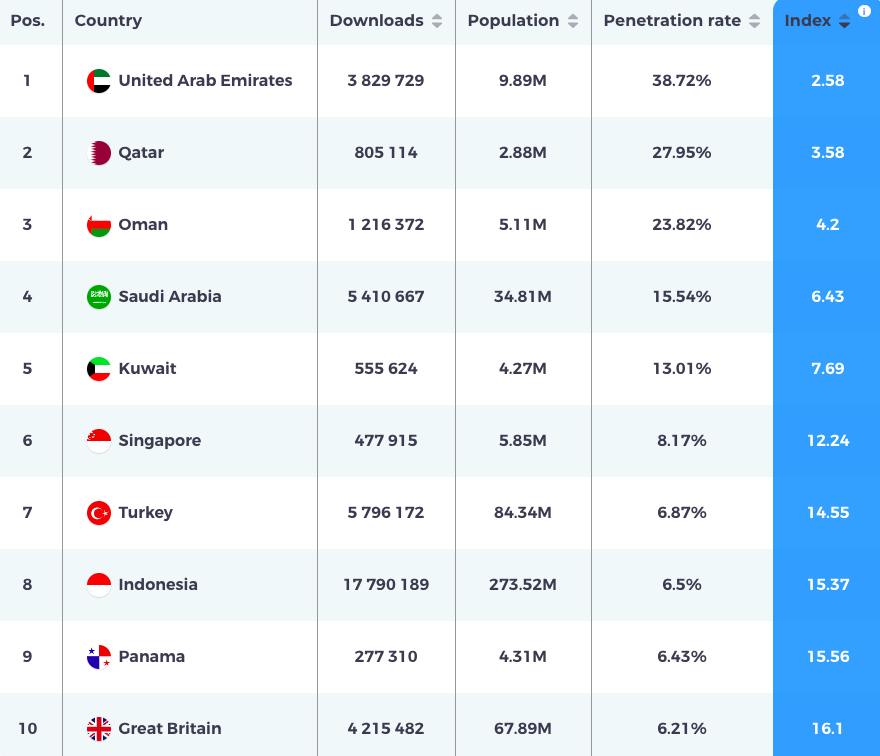Demand for VPNs is increasing globally, with a total of 134 million downloads made across 85 selected countries over the first half of 2020, according to the latest data from VPN provider Atlas VPN.
Among these, countries across the Middle East recorded the highest penetration rate. Topping the list at 38.72%, research found that 1 out of every 2.58 people in the United Arab Emirates used a VPN service, followed closely by Qatar (1 of 3.58) and Oman (1 of 4.20). VPNs allow citizens in countries with strict censorship rules to bypass national network restrictions and access popular social media platforms such as Facebook and Whatsapp.
However, in terms of volume, the highest number of VPN downloads originated from the United States, with 19,935,032 downloads made in H1, accounting for 1 out of every 16.6 Americans.
Singapore came 6th overall, with 477,915 downloads and a penetration rate of 8.17%. Hong Kong also ranked high, with 418, 516 downloads in 12th place.
Meanwhile, at a rate of 0.08%, Madagascar recorded the lowest VPN adoption rate among the countries analysed, representing 1 out of every 1268.54 people. Japan ranked the lowest within Asia, with a penetration rate of 0.62%.

Top 10 Countries with the Highest VPN Downloads in H1 2020 (Source)
Increased VPN usage is likely linked to heightened cyber security risks amid the COVID-19 pandemic. Data leaks reached an all-time high during the first half of the year, with the number of leaked records rising 492% from 4.7 billion to 27 billion breaches, on a year-on-year basis.
“It seems that data breaches are becoming more severe, with fewer breaches exposing more personal records than ever before,” AtlasVPN Chief Operating Officer Rachel Welch said. “In addition, not all breaches are detected and reported immediately, which is why we can expect even more breaches that happened within the first six months of this year to surface well after the first half of 2020.”
VPNs hide a user’s geographical location, login credentials, and browser data – even over public or insecure WiFi networks, helping to improve cyber security.
Global lockdowns and increasing social isolation have also prompted the surge in VPN downloads, as many looked to access wider news sources, digital media content, and social networks.
More recently, growing controversy and rumours surrounding viral social media app TikTok sparked sharp increases in web traffic for VPN providers. The app was recently banned in India, is no longer available in Hong Kong following the enactment of the national security law, and could face further restrictions in the US.
Related Articles
Cyber Crime Damages Expected To Reach USD 27 billion by 2025
VPN Downloads Surge in HK After Proposed Security Law Raises Alarms
COVID-19 Cyber Security: How Firms Can Better Protect Their Data





